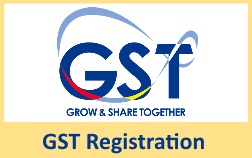Top Tips for a Smooth Singapore GST Registration Experience
Wiki Article
Maximizing Tax Obligation Efficiency: Expert Tips on Navigating the GST Enrollment Puzzle for Small Companies
Navigating the intricate landscape of Goods and Provider Tax (GST) enrollment can be a labyrinthine job for small organizations aiming to optimize their tax effectiveness. In this conversation, we will certainly check out experienced insights and workable guidance that can empower little businesses to navigate the GST enrollment maze effectively and optimize their tax performance.Qualification Criteria
Qualification requirements for Small Business GST Enrollment encompass particular requirements that companies should satisfy to comply with tax obligation laws. To certify for GST enrollment, an organization should have a yearly turnover surpassing the threshold set by the tax obligation authorities, which differs by country.
Documentation Needs
To effectively complete the process of GST enrollment, local business need to ensure they have all needed paperwork in order. The called for documents typically includes evidence of business enrollment or incorporation, identity and address evidence of business proprietor, photos, savings account information, and proof of the principal workplace. In addition, services need to offer details of their service activities, including the solutions or items provided. It is critical to make sure that all documents are exact, up to day, and in the defined style to stop hold-ups or denials during the enrollment procedure.Apart from the required documents, organizations may also be required to send added information based upon their certain circumstances. This could include records associated with partnerships, the authorization of signatories, or any kind of other relevant agreements. Keeping all necessary documentation arranged and conveniently available can improve the registration process and aid companies adhere to the demands effectively - Singapore GST Registration. Failure to provide the required documents may result in hold-ups or also being rejected of the GST registration application. Consequently, precise attention to information and adherence to the documents guidelines are important for an effective GST registration process for local business.
Timing Considerations
Taking into consideration the vital documents demands have actually been thoroughly addressed, the next crucial facet for local business embarking on the GST enrollment procedure is the tactical monitoring of timing factors to consider. Timing plays a pivotal function in GST enrollment, influencing not just conformity however also financial facets of the company. Small companies need to carefully plan the timing of their GST enrollment to make best use of advantages and reduce possible threats.
In addition, organizations ought to line up the timing of their GST enrollment with their functional readiness. Appropriate preparation, such as updating audit systems and training staff, is important to perfectly integrate GST requirements right into day-to-day procedures. By purposefully taking care of timing factors to consider, local business can navigate the GST enrollment procedure successfully and optimize their tax performance.
Registration Process Tips
Efficiently navigating the GST enrollment procedure calls for small companies to carry out aggressive and strategic registration process pointers. One essential idea is to guarantee all necessary papers are conveniently available before beginning the registration procedure. This includes service registration files, evidence of address, bank declarations, and identification evidence of business owners. Validating the accuracy of the details provided is just as vital to stop hold-ups or rejections.Additionally, comprehending the limits and needs for GST registration go based on the certain state or region where the organization runs is crucial. Some states have various turnover limits that cause compulsory enrollment, so being notified regarding these limits can help companies intend in advance.
An additional valuable suggestion is to think about looking for expert aid from accounting professionals or tax obligation consultants who focus on GST enrollment. Their knowledge can improve the process, decrease errors, and make certain compliance with all regulations.
Compliance Best Practices
Navigating the GST enrollment procedure efficiently necessitates not only strategic enrollment procedure pointers yet also persistent adherence to compliance best techniques to make certain recurring governing positioning. Small companies have to prioritize conformity to stay clear of fines and preserve a good standing with tax authorities. One vital ideal technique is to keep comprehensive and precise records of all purchases. This consists of billings, receipts, and other economic files that may be required for tax obligation audits or compliance checks. Furthermore, staying educated about any adjustments or updates to GST policies is vital. If needed to ensure they are fulfilling all requirements, little organization owners should frequently review government standards and seek specialist guidance. Singapore GST Registration. It is also advised to file GST returns in a timely manner to avoid late charges and fines. By integrating these conformity best methods right into their operations, small companies can browse the complexities of GST enrollment with self-confidence and efficiency.Final Thought
To conclude, tiny businesses can navigate the GST registration puzzle by ensuring they fulfill qualification standards, collect required documentation, think about timing ramifications, comply with registration process pointers, and comply with compliance best techniques. By maximizing tax obligation efficiency through appropriate GST registration, businesses can boost their economic administration and operations.Navigating the elaborate landscape of Goods and Services Tax Obligation (GST) registration can be a labyrinthine task for little organizations aiming to maximize their tax obligation performance.Qualification needs for Small Service GST Enrollment include specific criteria that organizations have to fulfill to conform with tax regulations. The called for paperwork typically includes evidence of service registration or identity, unification and address proofs of the business proprietor, photos, financial additional resources institution account details, and proof of the primary area of organization. Furthermore, businesses need to provide information of their business tasks, including the solutions or goods provided.Efficiently navigating the GST registration process calls for little organizations to execute aggressive and calculated enrollment process pointers.
Report this wiki page